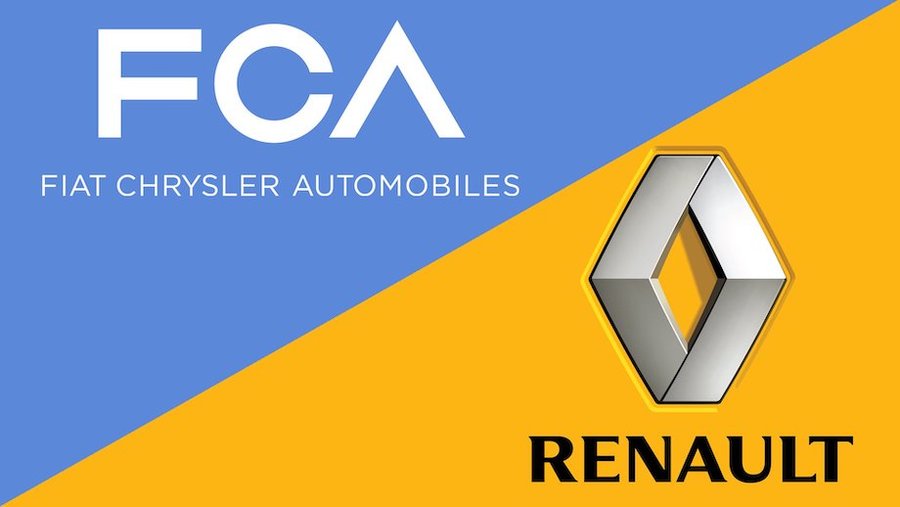Strains between France and Italy risk Renault-FCA merger

Fiat Chrysler's proposed $35 billion merger with Renault has cheered investors, won conditional support from Paris and Rome and even earned cautious backing from trade unions.
Beneath this veneer, however, the bold attempt to create the world's third-largest carmaker risks becoming rapidly embroiled in the fraught relationship between France's europhile President Emmanuel Macron and Italy's euroskeptic leaders.
For while Deputy Prime Minister Matteo Salvini hailed the proposal as a "brilliant operation," Italy's creaking, state-subsidized Fiat factories are likely to bear the brunt of any production-related cost savings.
FCA and Renault said this week that more than 5 billion euros ($5.6 billion) of annual savings would come mainly from combining platforms, consolidating powertrain and electrification investments and the benefits of increased scale.
Salvini and France's Finance Minister Bruno Le Maire, who called the deal a "good opportunity" to build a European industrial champion able to compete with China and the United States, have both said they want guarantees on local jobs.
"It's not every day that I agree with Salvini," said Le Maire, whose government appears to hold the trump cards.
When it comes to where any job cuts fall, France will be helped by its existing 15 percent holding in Renault, whose superior efficiency at its five French plants makes it better placed to handle a supply glut, the demise of the petrol engine and the investments needed for electric and autonomous vehicles.
"It will take many, many years to find real savings, and ugly political and operational realities can often swamp the potential of such new entities," Bernstein analyst Max Warburton said of the FCA-Renault plan to rival Japan's Toyota and Germany's Volkswagen.
Advantage France?
As well as Italy's government having to cope with the aftermath of European elections, which coincided with news of the FCA-Renault plans, political leaders in Rome were only informed shortly before the deal was made public, an FCA source said.
This contrasted with the way the French government was treated, with Fiat Chrysler Chairman John Elkann, a fluent French speaker, letting it know of his merger proposal to Renault weeks ago, a French government official said.
It is not clear how advanced the secret talks between the automakers were at this stage or what opportunity Le Maire had to lay down any red lines, but it reflects FCA's need to have President Emmanuel Macron on side.
And it gave France time to prepare its position, with Le Maire on Tuesday laying out four conditions for state approval, including protection of French blue-collar jobs.
Meanwhile, Italy's Salvini said Rome might buy a stake the new entity to defend domestic interests.
Corporate France has been the biggest overseas investor in Italian companies over the past decade with deals totaling $43.3 billion, Refinitiv data shows.
Some are closely scrutinized by Rome, which is fretting over the vulnerability of corporate champions such as Telecom Italia, in which Italian state lender CDP took a direct holding after Vivendi took a controlling stake.
Under the FCA proposal, Elkann, scion of the Agnelli family, would chair the merged group while Renault chairman Jean-Dominique Senard would likely become CEO, sources say.
'ECONOMIC FANTASY'?
While Le Maire has appeared well briefed, Italy's leaders seemed blindsided and Salvini's suggestion that Italy could mirror France's stake signaled concerns over Rome's influence.
With cash-strapped Italy locked in a renewed row with Brussels over euro zone budget rules, some French officials dismissed talk of an Italian stake as a bluff, with one describing it as "economic fantasy".
There are signs the effort to save jobs will focus on the factory floor. Le Maire is demanding that no "industrial jobs or industrial plants" are axed in France, leaving scope for white-collar and engineering layoffs as well as downsizing plants.
Indeed, the merger plan dovetails with Macron's push for cross-border industrial champions that have the muscle to compete with Chinese and U.S. rivals of today and the future.
Le Maire urged trade unions to look at job creation potential in a company with the financial clout to be a global player in electric battery and self-driving car technology.
Macron has stared down unions before, including over the proposed Franco-German merger of Alstom and Siemens rail businesses, which was derailed by antitrust concerns.
Even so, it is unclear how realistic the demands for blue-collar job protection are, with "substantial product and platform overlap in Europe", UBS analyst David Lense said.
Renault has improved the competitiveness of its French plants, shedding 8,000 jobs via voluntary departures since 2013 and paring back production lines to curb excess capacity.
It employs 48,000 people in France, with its plants operating at about 70 percent capacity, while Fiat's six plants in Italy struggle.
Turin's historic Mirafiori plant, which makes the Maserati Levante SUV, is expected to operate at just 5 percent capacity this year. Only two plants producing between them the Fiat Panda, Fiat 500 X and the popular Jeep Renegade top 50 percent capacity, research group LMC Automotive said.
Higher carbon dioxide emissions may also focus attention on FCA's plants as the combined company looks to tackle tightening emissions regulations and far-reaching technological changes.
"These challenges are potentially big push backs and are bigger issues for FCA than for Renault, which doesn't need to restructure in France and which has much lower CO2 emissions," Deutsche Bank analysts said in a note.
(Reporting by Richard Lough, Laurence Frost and Gilles Guillaume in Paris, Giselda Vagnoni in Rome, Giulio Piovaccari, Pamela Barbaglia and Silvia Aloisi in Milan; Editing by Georgina Prodhan and Alexander Smith)
Related News
